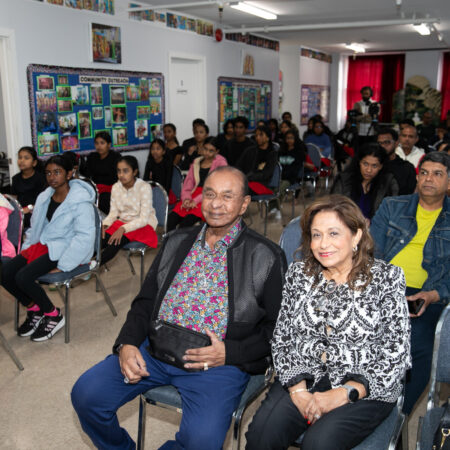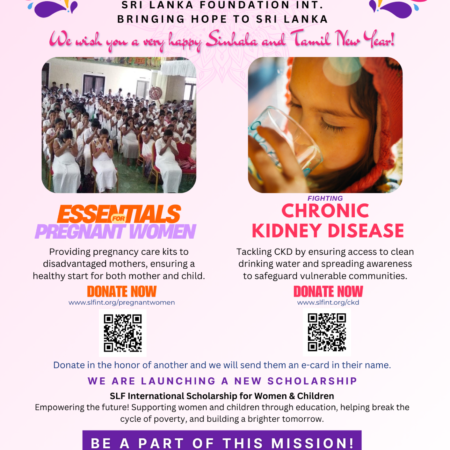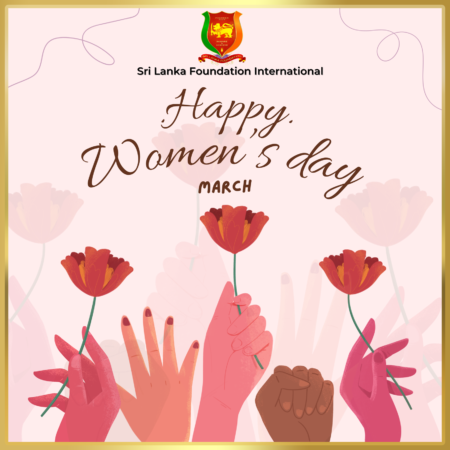As a kid, Vimukthi Liyanage liked to make things. Fortunately, for Vimukthi, who grew up on the southwest coast of Sri Lanka, his instinct to tinker morphed into a pathway to the Sri Lankan Institute of Technology, one of hundreds of IT training colleges springing up all over this small island nation. From the outset, he tracked the global startup scene, particularly as it was evolving in Silicon Valley. He avidly consumed news from TechCrunch and other leading tech news platforms. The pace of innovation on the global stage set his ambitions toward something big.
Vimukthi’s first break came after he completed his senior school studies and moved to Colombo, the nation’s capital. He joined the Sri Lankan media enterprise, Derana, which runs two TV stations, some radio stations and a website. He started as a web developer and his talent was quickly recognized by management who gave him the space to start developing a newsreader app. The result was Mogo Reader, an Android-based, Flipboard-style personalized news aggregator for the Sri Lankan market.
Mogo Reader was a first, like so many apps in this country. But unlike most of the other apps, Mogo Reader gained attention outside of Sri Lanka when it became the global winner of Google Success Stories for 2014. The prize was $5,000 and, more importantly, a trip to Google headquarters in Mountain View, California, where Vimukthi was able to participate in Google I/O, the company’s annual software development conference in San Francisco. There, he was exposed to numerous, in-depth technical sessions on web, mobile and enterprise development using Google technology. The experience put him on a whole new trajectory.
“Google I/O was a great experience for us as developers. We got exposed to a lot of new technologies. When we returned, my partner Shameera and I got investment from Derana to start a company, Mogo Solutions,” Vimukthi said.
The exposure to the level of development happening in the global tech community further inspired Vimukthi to think big. “There are two types of developers in Sri Lanka,” Vimukthi explained. “The first are developing for the local market. The second are aiming for the global market, which is harder. I want to take my product global. I was really motivated by Google I/O to build a product for a global audience. I have always wanted to build a global team. I was motivated by a lot of Silicon Valley startups.”
Internews’ Code4Good opens new doors
With the Google I/O experience behind them, and investment from Derana in their bank account, Vimukthi and Shameera now faced the difficult task of building a company. While Sri Lanka is relatively rich in smart developers, the startup scene here lacks certain key ingredients for building healthy companies. The ecosystem that drives successful companies in places like Silicon Valley of capital and talent is still evolving.
“Right now, the Sri Lankan startup ecosystem is booming,” Vimukthi explained. “There are a lot of young students and entrepreneurs joining the scene and building a software and applications. There are thousands of talented developers. But then it comes to designing user interfaces and marketing our work; we remain weak.”
Enter Code4Good, a 3-month design, development, and incubation process driven by Internews in Sri Lanka.
The overall goal of Code4Good was to build a bridge between relatively low-tech civil society organizations and the fast-moving startup community to create technology solutions for social issues.
As Sam de Silva, head of Internews in Sri Lanka, explained, “We wanted to do more than a simple hackathon, which in our experience offers only a partial solution. So we started by having civil society pitch its problems to the tech community. There were a wide range of issues, from mistreatment of women complainants at local police stations to deeper engagement with ministers of parliament by citizens. This was followed by a session where developers could go and meet with civil society groups and get a richer understanding of the problem they were solving.”
Fayaz Hudah, founder of the first technology accelerator in Sri Lanka, Spiralation, funded by the World Bank and overseen by the Sri Lankan Ministry of Information Technology, served as a mentor to the Code4Good teams. Fayaz said, “The level of engagement was excellent. We had about 100 developers, which is high for Sri Lanka, and most of the civil society representatives stayed throughout the hackathon.”
Apps that improved information flows was a theme for the program, and Vimukthi and his partner signed on to participate. The result was Kaawo, Sinhalese for “bookworm,” a collaborative storytelling app originally intended for citizen journalists. Kaawo won one of the top prizes at the Code4Good hack and received a coveted slot in the 6-week incubator program. The Kaawo team was hungry to learn.
Mentoring makes a difference
If left to their own devices, Vimukthi admits, they would have tried to implement their whole vision of Kaawo on day one, with little market testing or design iterations. “Build it and they will come” was their working model, an approach that developers with more experience know is largely doomed to fail.
The mentorship that Fayaz offered to the Kaawo team after the hackathon made a huge difference to the young founders and their mobile app.
“Initially, we had the idea of doing a collaborative storytelling app, but we didn’t understand that we needed to get that idea validated by actual users. So Fayaz suggested we give the app to 20 to 100 users and get their feedback. Even with the mobile reader app, we just thought, if we build it, they will use it. But with Kaawo, we have had a lot of iterations,” said Vikmuthi.
The original idea came from a Facebook page in Sri Lanka that enabled collaboration storytelling. The team was planning to build an app that would allow both fiction and nonfiction stories. Through the mentoring process, they realized that these were two very distinct applications with different needs and requirements.
“Fayaz suggested that we start with the fictional part and find early adopters who love storytelling. He helped us see that we needed to understand the actual users behavior and the value of the product for them. Fayaz and Sam helped us during that period a lot,” said Vimukthi.
Today, Kaawo is in an invitation-only beta, in both English and Sinhalese. The app has about 100 beta users.
“Our beta users are all storytellers and they are interested in creating collaborative stories on their mobile phones. We are planning to exhibit at Sri Lanka’s book fair so we can bring more traditional storytellers to technology. From the technical end, we are in the early stage of development and we are continually improving our technology,” Vikmuthi said.
The ultimate goal for Kaawo is a collaborative non-fiction platform for journalists. This will require additional development in information validation and verification, as the team is well aware.
“Our business model will be based on the non-fictional aspect. It is a subscription model for the media agencies. So they will pay according to their usage. Derana will be a customer,” said Vimukthi.
Vimukthi and Mogo Solutions are just one of many emerging young companies in Sri Lanka with a genuine wish to do well and do good and contribute to improving the information flows outside the traditional media models. In a country emerging from more than three decades of war and repression, the creativity these developers are bringing to building innovative solutions that support a media sector in desperate need of new energy is critical.






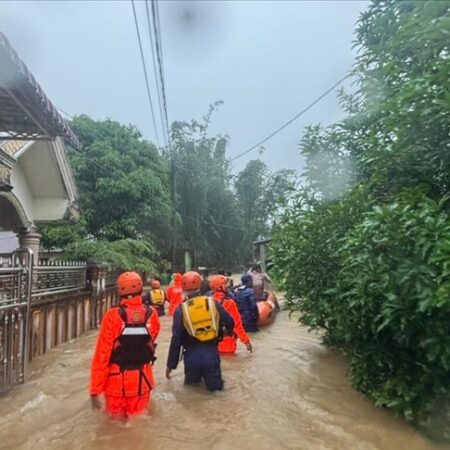
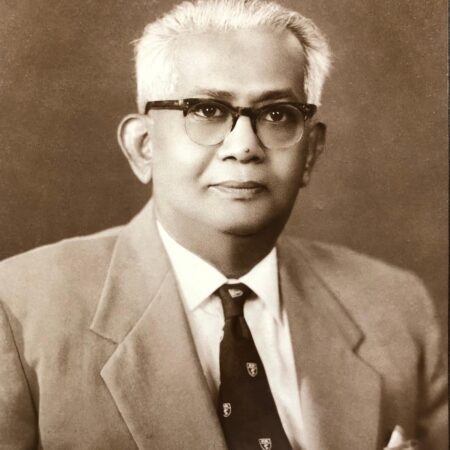
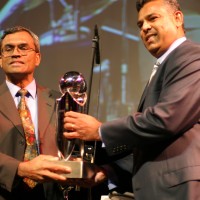



![TV-Poster-All-Exhibition-Sri-Lanka-in-Focus-USA-2025[1]](https://www.srilankafoundation.org/wp-content/uploads/2025/04/TV-Poster-All-Exhibition-Sri-Lanka-in-Focus-USA-20251-450x450.jpg)
